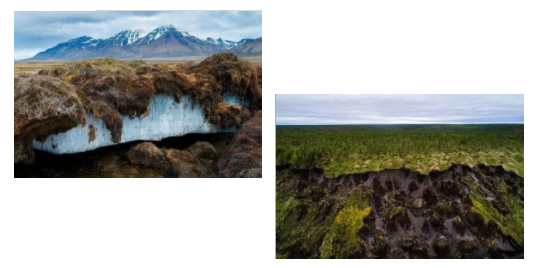Special issue on Degrading permafrost and its impacts
Permafrost mainly presents in three poles and other alpine and subalpine regions, with a total extent of ~22±3 million km2 and approximately a quarter of exposed land surfaces. Permafrost affects terrestrial ecosystem dynamics, water-carbon cycles, infrastructures and socioeconomic development to varied extents. Under a warming climate, permafrost has been degrading as evidenced by shrinking areal extent, rising temperature, reducing thickness, melting ground-ice, and extensive thermokarsting.
The 12th International Conference on Permafrost (ICOP 2020) will be held in Lanzhou, China on 22-26 June 2020. The conference theme is "Permafrost environments under persistent warming: Challenges for scientific assessment and engineering practice". The 12th International Symposium on Permafrost Engineering (ISOPE) is planned to be held in Lanzhou immediately prior to the ICOP2020. This 12th ISOPE aims at promoting theories and practice of permafrost engineering in Russia and China, and beyond, with foci on the High, Central and East Asia.

To harvest the great accomplishments of the two meetings, these special issues are dedicated to the research to understand the degrading permafrost under a warming climate and its impacts, in particular, identify predictive, evaluative and diagnostic tools for adapting and mitigating these changes effectively and in a sustainable way.
In particular, the Special Issues of the Advances in Climate Change Research (ACCR) are focused on the environmental and engineering impacts and mitigation/adaption and welcome the contributions yielding from the ICOP2020 and 12th ISOPE.
Guest Editors:
Huijun Jin
State Key Laboratory of Frozen Soils Engineering, Northwest Institute of Eco-Environment and Resources, Chinese Academy of Sciences
Qingbai Wu
State Key Laboratory of Frozen Soils Engineering, Northwest Institute of Eco-Environment and Resources, Chinese Academy of Sciences
Vladimir E Romanovsky
Geophysical Institute, University of Alaska Fairbanks, USA
More specifically, the subjects may include, but not strictly limited in the following aspects:
- Formation and longer-term evolution of permafrost;
- Degrading permafrost: field and lab observations and predictive models and assessment;
- Ecological impacts from degrading permafrost;
- Hydrological impacts from degrading permafrost;
- Impacts on engineered structures and mitigation;
- Adaptation to and sustainability of degrading permafrost environments under a warming climate, and;
- Methods and approaches for studying and assessing the degrading permafrost and its impacts.

稿件准备和提交:
Manuscripts should be submitted online at
http://www.keaipublishing.com/en/journals/advances-in-climate-change-research/
by registering and logging in to this website. Submitted manuscripts should not have been published previously nor be under consideration for publication elsewhere.
A guide for authors and other relevant information for submission of manuscripts is available on the Instructions for Authors page at
http://www.keaipublishing.com/en/journals/advances-in-climate-change-research/guide-for-authors/
Ensure that you mention the Special Issues (Degrading permafrost and its impacts) call for papers in your cover letter. Manuscripts, preferably no more than 10-15 pages, can be submitted until the deadline. All manuscripts will be peer-reviewed. Manuscripts will be published continuously online immediately on acceptance.
All accepted manuscripts will be listed together on the Special Issue website, and the ACCR special issues are to be printed timely before the 12th ISOPE and ICOP2020.
投稿截止日期:15 February 2020